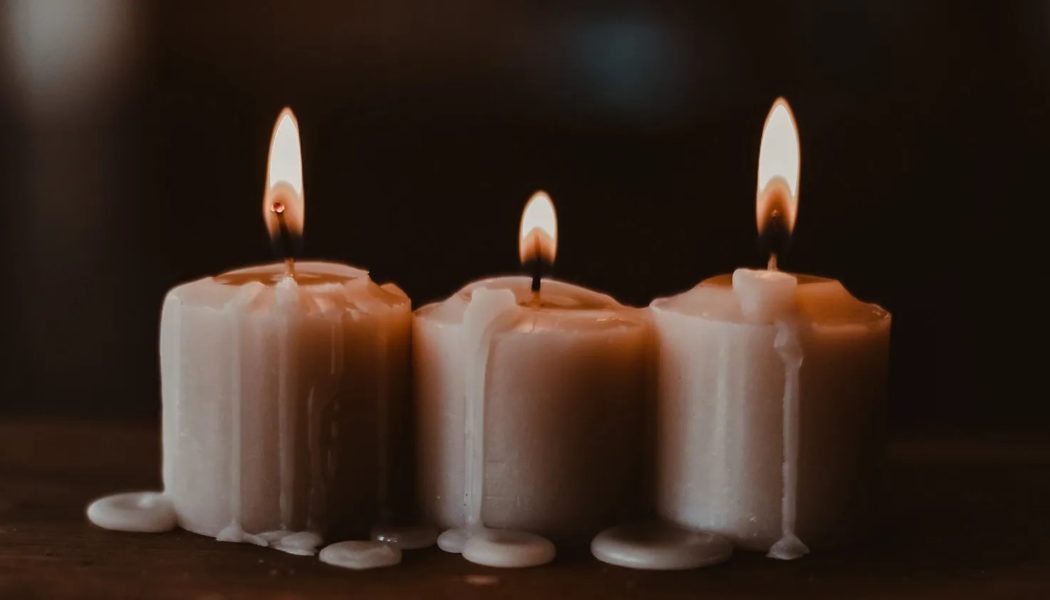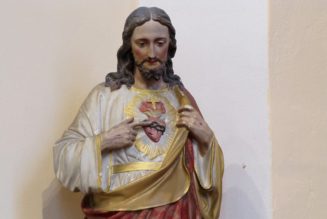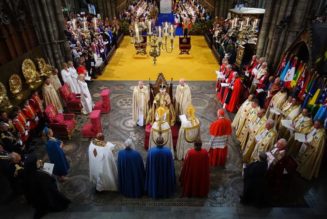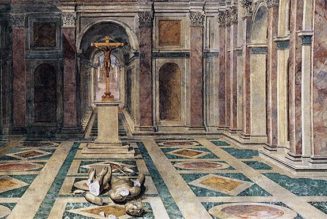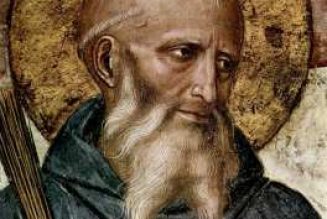
Imagine that, this Christmas, instead of sparkling lights, gifts, and your favorite food you get locked in a cellar. What should you do?
Rejoice! And patiently wait for something better. That’s what the readings say this Third Sunday of Advent, Year A, Gaudete (Rejoice) Sunday.
Last week we heard John the Baptist confidently predicting the Messiah’s victory, coming soon. This week he has never been more defeated.
Sunday’s Gospel begins: “When John the Baptist heard in prison of the works of Christ, he sent his disciples to Jesus with this question, ‘Are you the one who is to come, or should we look for another?’”
It’s important to realize what it means to be in prison in the ancient world. John wasn’t in an airy jail cell with a cot. He was most likely in something like a dungeon, sleeping on the dirt floor with the rats and bugs. It’s true that prisoners had occasional access to people they knew and loved — probably to help provide for their sustenance and to serve as a warning to others. But, as Pope Benedict XVI, pointed out, the greatest deprivation of the prisoner was the lack of light. Above ground habitation spaces weren’t wasted on prisoners; nor were lanterns and torches.
So think of the contrast: The desert-dweller who slept under the stars is now a dungeon-dweller who sleeps underground. The commanding voice of the prophet is now the questioning voice of doubt. The denouncer of those in power is now the detainee of those in power. The man who announced that Jesus would come with an axe to fell the trees of the fruitless and a winnowing fan to clear the threshing floor of the wicked is now facing the fact that the wicked are still firmly in place while he has been cleared away, and that he is the only one facing an axe — the one that will behead him.
Has the voice crying out in the desert become a whisperer of doubts in the darkness?
Not necessarily. Fathers of the Church insist that John’s question is for the sake of his disciples. In Mark Chapter 3, Jesus’s family thinks Jesus has gone crazy and Mary has them take their doubts directly to Jesus. Here, John follows the same plan: He directs those who doubt Jesus to go ask Jesus for themselves. That is good advice for us, too.
But we could forgive John if he really did wonder, “Wait — what happened? Where is the triumph I promised?”
Jesus’s answer is something I have only recently in my life come to understand more deeply.
I have always understood the first part of what Jesus says: “Go and tell John what you hear and see: The blind regain their sight, the lame walk, lepers are cleansed, the deaf hear, the dead are raised.” He is saying that the prophecies of Isaiah in our First Reading are being fulfilled — and the prophecies of Sunday’s Psalm, too.
Well, several of the prophecies, anyway. What about all those prophecies that Jesus seems to have skipped?
Isaiah also says God will come “with vindication … to save you,” and the Psalm also says the Lord “secures justice for the oppressed,” “thwarts … the way of the wicked” and “sets captives free.” But here is John, unvindicated, unsaved, unfree, oppressed and thwarted by the wicked.
King Herod imprisoned John because John dared to speak out against his divorce and remarriage to his brother’s wife. But not only was John not vindicated, it seems that if anything, King Herod has vindicated. To this day, doing what Herod did is legally protected and arrangements like King Herod’s are tolerated even by some leaders in the Church.
Maybe the Second Reading, from St. James, tells us how to understand all this. “Be patient, brothers and sisters, until the coming of the Lord,” he says. “See how the farmer waits for the precious fruit of the earth, being patient with it until it receives the early and the late rains. You too must be patient. Make your hearts firm, because the coming of the Lord is at hand. … Behold, the Judge is standing before the gates.”
He tells us to do the right thing and be patient, whether the law is on our side or not, and whether all members of the Church stick with the faith or not. Jesus the judge is on his way.
It seems absurd to be asked to be patient while wicked flourishes, until you remember one thing.
Patience is not the doormat virtue of those who tolerate evil and pretend everything is okay when it is far from okay. Instead, patience is the stand-tall virtue of those whose faith in God is unshakable and whose trust in him is irreversible.
I recently noticed Church Father Tertullian’s high view of patience. He sees impatience at the heart of the Original Sin and patience as the key to happiness and holiness.
Eve “would never have sinned at all, if she had honored the divine edict by maintaining her patience to the end,” he writes. “As God is the author of patience, so the devil is of impatience.” Satan played on Eve’s impatience, suggesting she could become like a god now, not waiting for divinization God’s way. God glories in being, in the very act of existence, like a farmer who cherishes each stage in the crop, from seedling to harvest.
Tertullian’s essay helped me understand why Moses’s sin of striking the rock was so terrible that it kept him from entering the Promised Land. The Lord told Moses to command a rock to pour forth water to quench the people’s thirst in the desert. Moses did, but then struck the rock twice, as if to say, “Hop to it, God!” Instead of conforming himself to reality, which belongs to God, Moses tried to conform God to the reality he wanted. Like Adam and Eve, what he did tried to dethrone God and enthrone himself, subverting God to his desires and his timetable, instead of the other way around.
Hope proved by patience is the “good news” that is proclaimed to the poor.
I used to think our relationship with God means that he comes to heal our suffering, so that we can strengthen others in a hard world. Now I realize that our relationship with God strengthens our hearts to suffer and serve and wait along with other sufferers in a hard world. The ones who are closest to God aren’t those who are talented, healthy and materially well off and thank God for it; the ones closest to God are those who are feeble, weak, and afraid of what happens next.
Christmas isn’t a festival of strength, it’s encouragement for the weak. In Isaiah, the Lord is talking about us when he says: “Strengthen the hands that are feeble, make firm the knees that are weak, say to those whose hearts are frightened: Be strong, fear not! …They will see the glory of the Lord, the splendor of our God.”
Some of us have been beaten back by life and keep going, with a lot less zeal than we had before; some of us have been so beaten down we can barely function and have basically checked out. In either case, we are the people whose patience Jesus wants to reward — those of us who are in the dungeon of our addictions and shortcomings, oppressed by foes within and without, our swagger gone, replaced by whispered doubts and broken questions.
We are the ones who have finally learned patience because the only alternative is despair. We are the ones who can rejoice on Gaudete Sunday. As the Communion Antiphon says: “Be strong and do not fear. Behold, our God will come, and he will save us.”
St. James says: “Take as an example of hardship and patience, brothers and sisters, the prophets who spoke in the name of the Lord.”
For all the prophets before John, it was always Advent and never Christmas; they were born into a Christless world, prayed for Christmas to come, then died in a Christless world.
John the Baptist was “a prophet. Yes, I tell you, and more than a prophet,” says Jesus. “There has been none greater than John the Baptist. Yet the least in the kingdom of heaven is greater than he.”
Think of how true that its. John died without ever seeing Jesus die on the cross, but we see our redemption reenacted at each Mass. John died without ever seeing Jesus rise from the dead, but we renew Easter each Sunday. John died without ever seeing Pentecost transform Mary and the Apostles, but we receive the Holy Spirit at Baptism and Confirmation. John died without seeing the first gigantic growth of the Church, but we have seen the Christian revolution of love transform the morality of the world.
John believed, trusted and loved anyway. Our patience should surpass even his.
Join Our Telegram Group : Salvation & Prosperity
